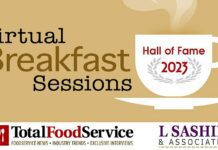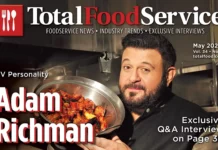
Article contributed by Alexander Soric, Ellenoff Grossman & Schole LLP
With an uptick in union organizing across the country, and recent union organizing in brick and mortar food establishments in New York that historically have remained non-union, it is no surprise that rules for engaging with employees on union organizing campaigns have come into greater focus.
Generally, the National Labor Relations Act (“NLRA” or the “Act”) sets the rules for labor-management relations and interactions with an employer’s workforce; it is enforced by the National Labor Relations Board (“NLRB”). In the labor context, the Act seeks to rout out attempts by employers or the unions to convey misinformation, engage in coercive conduct to encourage or dissuade employees from joining unions, or to gauge employees’ leanings for or against unions. Indeed, a recent NLRB memorandum by its current General Counsel took the position that “captive audience meetings” are unlawfully coercive under the Act.
Not surprisingly, on September 6, 2023, New York State Governor Kathy Hochul signed into law a bill that barred New York State employers, including food service employers, from requiring employees to attend meetings or to listen to communications where the “primary purpose” of such meetings or communications is for management to voice its views on certain religious or political matters, including joining a labor organization.
Such meetings are more commonly referred to as “captive audience meetings.” This law went into effect immediately.
This law modifies Section 201-d of the New York Labor Law (“NYLL”) and generally prohibits New York State employers from disciplining workers for refusing to attend captive audience meetings. Specifically, under the new law, it is unlawful for employers to refuse to hire, employ, license, discharge from employment or otherwise discriminate against employees, because of the employee’s refusal to: (i) attend an employer-sponsored meeting with the employer or its agent, representative, or designee, the primary purpose of which is to communicate the employer’s opinion concerning religious or political matters; or (ii) listen to speech or view communications, the primary purpose of which is to communicate the employer’s opinion concerning religious or political matters.
The new law defines “political” matters as matters relating to “elections for political office, political parties, legislation, regulations, and the decision to join or support and political party or political, civic, community, fraternal, or labor organization.” The law defines “religious” matters as relating to religious affiliation and practice and the decision to join or support any religious organization or association. The new law also requires that every employer post a sign at each location where notices to employees are typically posted that will inform employees of their rights under this NYLL Section 201-d.
However, the law provides a limited exception for non-mandatory “casual conversations” between employees and employer representatives. What a “casual conversation” may be and the line that may not be crossed is currently unclear and fraught with possible pitfalls. Therefore, employers are advised not to engage in any conversation with employees about unions or union organizing, particularly when the employer knows or has constructive knowledge that union organizing may be taking place at their establishment. Employers are equally advised to refrain from meetings that could arguably concern other “political” or “religious” matters as defined under the law.
Additional exceptions do not prohibit an employer or agent, representative, or designee from communicating to its employees any information that is necessary for such employees to perform their job duties, or that the employer is required by law to communicate.
The new law allows the Attorney General to apply to enjoin or restrain an employer from committing further violations and a court may impose a civil penalty on the employer of $300 for the first violation and $500 for each subsequent violation; and employees can bring claims against an employer for equitable relief and damages.
The new law is similar to the existing Connecticut law barring captive audience meetings, which has been challenged as unconstitutional and preempted by the NLRA. The New York law may face a similar future legal challenge. Because the New York law defines “political matters” to include “the decision to join or support” labor organizations, by restricting the employers’ ability to voice its views on joining a labor organization, it is likely preempted by Section 8(c) of the NLRA, which allows an employer to express “any views, argument, or opinion” if such expression does not include threat of reprisal or force or promise of benefit. Further, the New York law, aimed at “protecting employee freedom of speech,” likely will be challenged on grounds that it unlawfully violates businesses’ First Amendment rights of free speech.
Given the uncertainty of the scope of non-mandatory “casual conversations” between employers and employees, food service employers are advised not to engage in any conversation with employees about unions or union organizing, particularly when the employer knows or has constructive knowledge that union organizing may be taking place at their establishment.
Next steps that employers should implement are to: (i) post signage informing employees of their rights under the new law, and (ii) reassess and consider other ways of communicating with employees regarding labor organizing, union election campaigns, and the like.

Alexander Soric is of counsel at Ellenoff Grossman & Schole LLP in New York City and practices in the firm’s Labor and Employment Practice Group. As a first chair, Mr. Soric represents management in labor relations, including in numerous arbitration hearings, collective bargaining, mediations and in matters before the National Labor Relations Board. He has represented management in several class actions brought under the Fair Labor Standards Act, the Davis-Bacon Act and State wage-hour matters in federal and state courts and in federal, state and local agencies. Alexander Soric can be reached at asoric@egsllp.com or via phone at 212-370-1300.
























